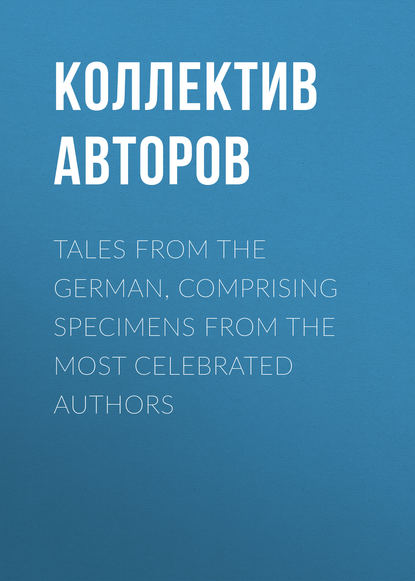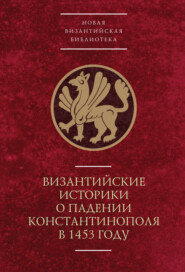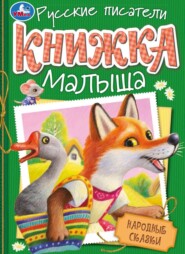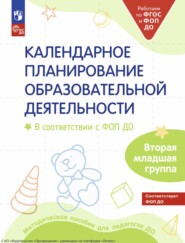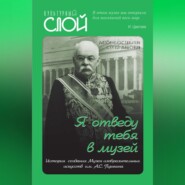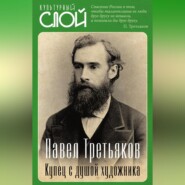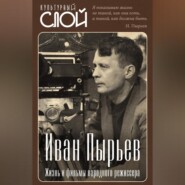По всем вопросам обращайтесь на: info@litportal.ru
(©) 2003-2024.
✖
Tales from the German, Comprising specimens from the most celebrated authors
Настройки чтения
Размер шрифта
Высота строк
Поля
"'Peribanu,' he replied, 'you have none on me, and why should I have any on wretched mortals?'
"'Love cannot be forced,' said I, 'but reason rules every thing, and ought to rule you. Do you not tremble at the vengeance of the judge?'
"'Teach me to esteem them,' he exclaimed, 'and I will cease to persecute them.'
"Some time after that he came to me in a friendly manner, saying, 'Peribanu, allow me to present you with a magnificent ornament for the bosom. I shall consider your acceptance of it the only way of compensating for the contempt you have expressed.'
"I was imprudent enough to accept this beautiful serpent of precious stones, which you now hold in your hand, and placed it on my bosom. I had scarcely done so when I fell into a death-like trance. In this state Zelulu's slaves brought me into this vault, where I should have continued for centuries without hope of deliverance, had not Heaven, through you, rescued me. Thus the wicked Zelulu exercised his power over me without any resistance. He came to me every night, asking me whether I would love him; for the charm was so contrived that it deprived me of the exercise of my power and of motion, without depriving me of consciousness. I have always answered his importunities with a loud and distinct 'No!' so that he was obliged to depart without hope."
The fairy now took Ali by the hand, and led him out of the mosque, through a long corridor, into the apartment of white marble. She touched his eyelids with her sceptre, and drew aside the curtain. What was his astonishment when, instead of his Gulhyndi, he saw an image of wax, which had but an imperfect resemblance to his beloved! The figure stared at him with dull, glassy eyes, like a painted corpse. He could not conceive how it was possible to have mistaken this horrible pale lump for his Gulhyndi. Peribanu struck the wax figure with her sceptre, it broke, and a hideous knot of poisonous serpents rolled from its bowels, and fled into the clefts of the rocks for fear of her wand. Ali cast his eyes on the two metal lions which stood on either side of the couch, and saw in amazement that they were living. They wagged their tails, and stared with fiery eyes at him. "Flee," cried the fairy, raising her wand, and they fled quickly, like obedient dogs.
"Go home to your father," said the good fairy, "do all he commands you, and this shall be the means of your happiness. You will see Gulhyndi again."
With these words she led him up the steps to an aperture, saying, "Go, you will find yourself in a well-known spot, not far from your native city. Remember what I have told you, and forget me not."
Saying this, she vanished. Ali stepped out, and found himself by the brink of Ali Haymmamy's fountain. It was a fine morning, and the rising sun cast his rays upon him. He stood for a moment and looked down into the depth, scarcely knowing whether what he had passed through was a dream or reality: he remarked at the same time that he still had the talisman in his hand. He was careful not to bring it near his bosom; but kept it as a sign of the past singular events, and wrapped it in the folds of his turban. Now he set out on his way with a heart joyful and full of hope, and before noon he arrived at his father's at Bagdad.
The following morning Ibrahim said to Ali, "I am rejoiced, my son, that you have begun to compose yourself. There is no better remedy against melancholy thoughts than amusement. I intend taking a journey to Samarcand in a few days, and doubt not that it will be very advantageous to us. I have already received my goods from a port on the Red Sea, and expect to barter them profitably for the precious things of Upper Asia. My advantage is yours; therefore go too, it will cheer you and assist me."
Ali, recollecting what the fairy had told him, looked upon his father's proposal as a presage of his happiness; and soon Ibrahim and his son departed from Bagdad, with a large number of slaves and heavily laden camels. Not far from the city they fell in with another caravan, and now hastened, as quickly as circumstances permitted, through many remarkable countries and cities of the far-famed Samarcand.
During their journey they were often obliged to cross deserts and trackless steppes, where Ibrahim, never having made this journey before, trusted himself to a guide. After having thus travelled for several months, and stopped at different places, they one evening passed through a desert. The guide, a little deformed man, with a red nose, assured them that this would be the last, and promised that within three days they would reach their destination.
As they now passed through a narrow valley, bounded on either side by lofty rocks, and thickly overgrown with pine trees, a most terrible phenomenon presented itself, that dispersed the whole caravan. A thunder-storm came on, and the lightning struck a mighty cedar, the resinous bark of which immediately ignited. The whole tree was instantly in a blaze, and the crackling fire spread on every side; all the pine, fir, larch, and cedar trees were in one blaze. The lurid tongues of the flames rushed fearfully along the mountain ridge in the dark night. A thick smoke arose and darkened the air beyond. In the universal confusion, where each only thought of saving himself, Ibrahim lost sight of his son. Ali anxiously searched for his father but without success. Throughout the awful night he rode about on his camel until it would no longer carry him. Terrified at the fire, it at length threw him off and rushed into the flames. Ali forced his way boldly through a narrow pass in the rocks, which the fire had not yet reached. Having passed through it, he saw before him a large valley and a wood beyond. He rallied his last energies to reach it, and sank down exhausted near a tree, where, by the light of the burning forest, he saw that the fire was not likely to penetrate so far; more, his failing strength did not permit him to observe, and weariness closed his eyes.
When he awoke, his first thought was of his father. He felt refreshed by a short sleep, and hastened onward. The country, although it was autumn, was blooming as though it were spring; nature had not purchased her fruits with her blossoms, but fruit and blossoms glowed side by side in sisterly concord. He had never seen such green fresh turf, nor such a variety of flowers. Straight before him opened a beautiful grove, with splendid orange and date trees, where he sat down and took refreshment in the cool solitude. As he sat buried in thought, he heard a voice call, "Ali! Ali!" Astonished, he looked round but saw no one. Thinking he had been mistaken, he continued eating his repast quietly. Suddenly the voice again cried directly opposite to him, "Ali! Ali!" and the name was repeated in several places. He now discovered a quantity of beautiful parrots flying about, which looked at him, and repeated with complacency his name. "Who has taught them this?" said Ali, to himself, and a sweet glow darted through his veins. The parrots still repeated, "Ali! Ali! Come! Come!" and fluttered from bough to bough. He followed them, and found himself at length before a thick hedge that was impenetrable. The birds flew over it, perched within it, and again cried, "Ali! Ali!" He now looked for an entrance, and finding one, at last entered, and saw a splendid lawn, enclosed by a semicircular hedge, both ends of which terminated by a rocky wall. In the centre of the turf was a flowerbed, whither one of the birds flew, again repeating his name. Looking at the plants, he discovered they were all arranged in letters; – great was his delight when he found an A. and G. beautifully entwined, and he no longer doubted where he was. He discovered the beautiful grotto, and hastened to it, exclaiming, "My Gulhyndi, where art thou?" To these words a sweet voice replied:
"Ali, dear Ali! where canst thou be?
Oft thy Gulhyndi weeps for thee."
"What is that? It is not her voice, it is not the voice of birds."
"My Ali! My beloved friend! thy Gulhyndi often weeps for thee," said a pert starling, hopping about on the ground and picking up some seeds.
"Ali! Ali!" cried the parrots, without.
"Ali! Ali! my beloved friend! Gulhyndi often weeps for thee," said the starling, stretching out her neck, bending not, and looking at him shrewdly.
Now a fine bird, in a golden cage, began to whistle a melody which Ali had taught Gulhyndi shortly before they parted. "Oh, she loves me!" he cried. "She is here! She has taught these feathered songsters my name and my songs. How many times must her lips have repeated these words before these birds knew them." At this moment he heard some one approaching; "It is she!" he said to himself, "but she must not see me yet – I must prolong this blessed moment." With his staff he traced the following lines in the sand:
"Lovely Gulhyndi, sorrow no more,
What hate has taken, love will restore;
The sun is more bright when the storm is o'er."
He had scarcely done this than the fair Gulhyndi, like a lovely queen of nature, appeared with her numerous train. As a proud body guard, there stepped before, with majestic step, two large bay coloured lions, with thick manes. By her side walked the beautiful Argus, as a faithful friend; while the most lovely birds fluttered, and the most lovely beasts of the forest gamboled around her. The train was closed by a troop of snow-white lambs with red ribbons round their necks, each having a singing-bird on its head, chirping, while the lambs bleated. Last of all came a stag, whose large antlers were hung with bells; so that the bleating of lambs, the singing of birds, and the bells of the stag were not unlike a merry band of Turkish music.
When they arrived at the grotto, the two lions lay down on either side of the entrance, and Gulhyndi, with her Argus, entered. All the rest remained without, forming a semicircle, while Gulhyndi took her repast. Two monkeys stood behind her couch, officiating as servants, and offering her fruit, and water from the fountain. Argus stood by her side, and, with his beak, caught in the air all the fragments which she flung to him with her white hand. All that he missed, so that it fell to the ground, the little starling snapped up before Argus had time to stoop after it.
When the repast was over, Argus went to the entrance, spread his shining fan, and turned it several times, upon which the assembled courtiers without dispersed. Only the lions remained at their post, and Argus remained in the grotto with her mistress, as lady in waiting.
Ali trembled with emotion when he beheld Gulhyndi, her fair hair flowing in long tresses. She wore a green silk robe, fastened with a purple girdle, without any other ornament. She appeared taller, more blooming and majestic; she was no longer the languishing, pensive, Oriental beauty sighing for liberty, but the healthy, sprightly daughter of Eve, blooming as the fairest flower in nature. Still a soft desire seemed to depress her arched brow, and indicated that, in the midst of abundance, she still lacked something.
While she was sitting with her eyes cast downwards, she discovered the lines traced on the sand. She immediately recognised the characters, but was doubtful whether she should trust her eyes. What was her delight when convinced of the truth, by the happy Ali hastening and throwing himself at her feet! Both now were in Paradise.
When their first transport was over, they related all that had happened to them since they last met. She told him that once, when she was alone in the grotto, the two lions had suddenly broken through the hedge. At this she was at first alarmed, but soon recovered on seeing that they lay down on either side of the entrance, like obedient dogs, and followed her as faithful guards. Ali could not suppress an inward shudder at seeing that they resembled the bronze lions which, at Peribanu's command, had become hairy, and left the subterranean apartment. He now built a hut in the neighbourhood of his Gulhyndi, without concern for his father, whom he confidently supposed was in the power of the fairy. But, unfortunately, this poor father had not fared so well as his happy son wished.
Ibrahim wandered for a long time in that awful night; he hastened to the opposite side to get clear of the burning wood, instead of penetrating through it as Ali had done. The ground became so stony and rugged, that he could no longer ride on his camel. He tied it to a tree, and endeavoured to make his way on foot through the thick bushes, in order to reach a high tree, on which he might pass the night without fear of serpents and wild beasts. As he proceeded, he fell into a dark, damp, deep pit, where he lay for some time senseless. When he recovered, he had only a faint recollection of the causes of his present situation; he had quite forgotten Hussain's and Gulhyndi's death, and fancied he had fled with his son from Bagdad, to escape the persecutions of the malicious cadi.
He had not remained long in this state before he saw coming through a narrow rocky path, a little person dressed in black like a miner, with a lantern in his hand. "Lockman," cried Ibrahim, who immediately recognised him, "you here, and in this garb! What does this mean? Where is my son?"
"You had better be your son's keeper yourself," replied Lockman; "I have nothing to do with him, but I have something to do with you. Up to work! you are now my slave."
With these words he seized Ibrahim, exhausted as he was, and led him to the icy cold bath in the cleft. He then brought him out again, and gave him bread and water, such as he had given to Hussain; but in his cup there was no leech, and, on the whole, he treated him less harshly than the cadi.
When Ibrahim had taken his scanty meal, Lockman said: "Get up and go with me; it was always your favourite business to seek riches. I will show you the way to gold and precious stones."
He then took him to the desert, and commanded him to search. When Ibrahim was left alone he was much confused, and grieved, but Lockman's threats made him obey. Walking about in the burning heat, he passed a high piece of rock, in the shade of which some grass was growing. He there beheld a pale, haggard man with sunken cheeks, sitting down, greatly exhausted. Being naturally compassionate, he quickly ran for a pitcher of water, which he had taken to the desert to quench his thirst while working, and which, to keep the water fresh, he had buried in the sand. This he brought, and put it to the lips of the fainting man. The poor man drank, was refreshed, folded his hands as he raised his eyes, and said: "Who art thou, angel from heaven, that assistest me in my extremity?"
Ibrahim knew the voice, and cried in amazement, "Hussain, is it you?"
Hussain stared at him, saying, as well as exhaustion permitted, "Ibrahim, are you here? How, have you come into this vale of tears to comfort your enemy?"
"By some evil fate I have fallen into the hands of mine enemy," replied Ibrahim, "who has condemned me to seek gold and precious stones in this desert." When he said these words, Hussain put out his hands for the sack which he had filled that day with much labour; but what was his terror on finding it half empty! "What is this?" he cried; "have you come even in the last moments of my life to rob me and expose me to frightful punishment?"
Ibrahim affirmed that he had taken nothing; he felt compassion for poor Hussain, and forgot his own trouble.
"You lie, infamous fellow," cried Hussain; "your bag is full, you have filled it from mine."
"I assure you," replied Ibrahim, "that I have taken nothing, nor have I ever thought of grieving you, and, as a proof, I will exchange my bag for yours whenever you wish." He then offered his own. "Stop here and rest yourself," he continued. "I am not yet so tired as to be unable to try to fill a second bag before evening." He left him, and with much pains collected the second half. Hussain did not know what to think of all this, and both went together to the cavern without speaking.
"Are your bags full: " cried the monster, who was sitting at the entrance as they arrived. "Empty them before me." Ibrahim emptied his bag first; it was full of gold and precious stones. Hussain came with the one Ibrahim had given him – and it contained nothing but sand and pebbles. Lockman looked silently incensed at Hussain, took him by the arm, and led him, weak and fainting, again to the terrible rushing shower-bath, where, for want of strength, he would have fallen into the abyss, had not Lockman seized him and flung him half dead on the sand.
"He is a villain," said he to Ibrahim, while the other lay fainting. "I will tell you plainly that he has slandered you to me, and is the sole cause of my receiving you so harshly. I hate him, for he is not even fit to do the work of a slave. If you will do me a service I will restore you to liberty, bring you to your son, and arrange every thing so that you may again live in Bagdad in your former happy circumstances."
"What do you desire?" asked Ibrahim.
"I am a spirit, and cannot dispose arbitrarily of the life of a mortal. You, on the other hand, have power to destroy each other; take this knife and thrust it into Hussain's heart, then I will restore you to your former happiness, and give you all the gold-dust and precious stones in my cavern."
"Far be it from me," said Ibrahim, "to act thus even to my bitterest enemy. May God forgive the evil we have done, and for which we are both now suffering. My hatred is extinguished. I have this day exchanged my bag for his, with the honest intention of lightening his burden. That it has turned out so badly is not my fault."
"Kill him," cried Lockman, threatening as he reached him the knife, "or I will throw you a hundred fathoms deep into the abyss, among serpents and adders!"
"Throw me," cried Ibrahim, with firmness, clasping his hands, and raising his eyes to the stars.
"You have regained courage," said Lockman, scoffing.
"Misfortune inspires that," replied Ibrahim.





